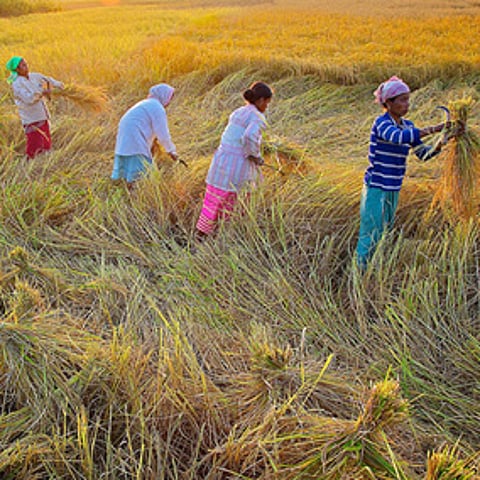Last September, inflation, as indicated by the wholesale price index, rose to a seven-month high of 6.46 percent. Food inflation was at 18.4 percent, and was led by skyrocketing onion prices, which increased by a whopping 323 percent. While the Union Minister for Agriculture, Sharad Pawar, ascribed the phenomenon to nothing more than a seasonal shortage, practices such as cartelisation, hoarding and price manipulation (all common in the industry) are more likely responsible. The fact that Pawar's Nationalist Congress Party traditionally holds sway in Nashik, which handles 70 percent of India's onion trade, may explain his reasoning. Whatever the causes, if even the well-heeled cannot at times afford basic ingredients such as onions, one may ask in perfect seriousness – and without inviting ridicule – what, if anything, are the poor expected to eat?
In this context, the passage in early September 2013 of the National Food Security Bill in both Houses of the Indian Parliament is good news. The National Food Security Act (NFSA), as it is now known, has been hailed by some as a revolutionary step towards addressing hunger and malnutrition in India, while others have seen little more than rank opportunism in its pre-election promulgation. Over 300 amendments were made to the Bill, most of them to expand its scope through a universalised Public Distribution System (PDS) covering pulses, oil, salt and staple grains, and introducing schemes such as community kitchens for the destitute.

